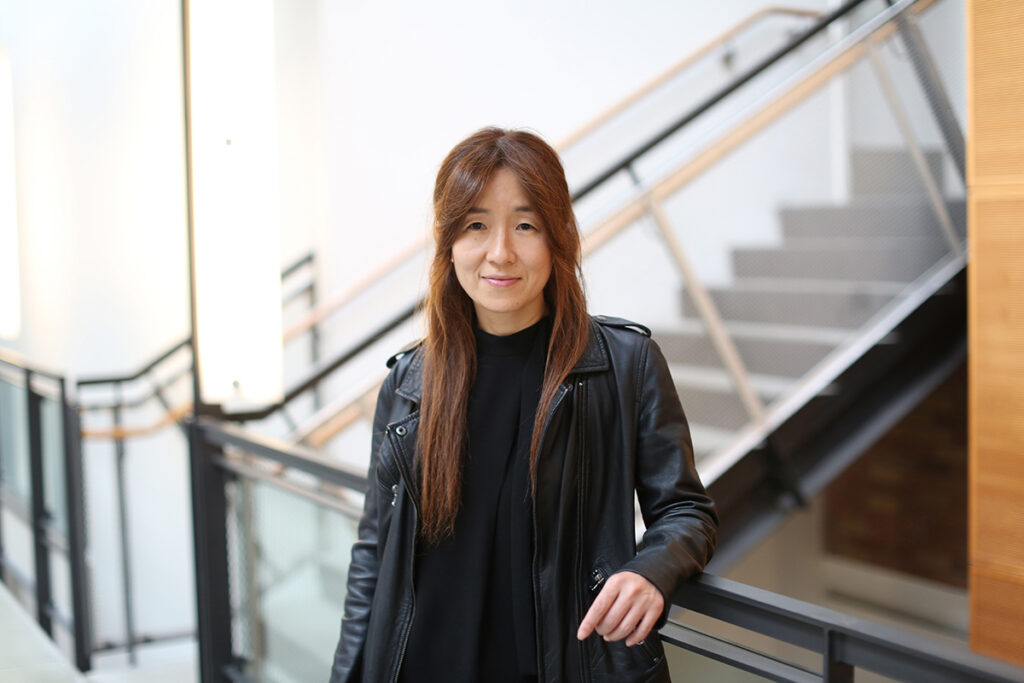Yejin Choi, a professor in the Allen School’s Natural Language Processing group, was selected as a 2022 MacArthur Fellow by the John D. and Catherine T. MacArthur Foundation to advance her work “using natural language processing to develop artificial intelligence systems that can understand language and make inferences about the world.” The MacArthur Fellowship — also known as the “genius grant” — celebrates and invests in talented and creative individuals whose past achievements signify their potential to make important future contributions. Each recipient receives a stipend of $800,000 that comes with no strings attached.
“It’s been several weeks since I learned about this award, and it still feels so surreal,” Choi told UW News.
Choi, who joined the Allen School faculty in 2014, may feel like she is dreaming, but her work has had a very real impact. Currently the Brett Helsel Career Development Professor in the Allen School and senior research manager for the Mosaic team at the Allen Institute for AI, Choi has contributed to a series of high-profile projects that have expanded the capabilities of natural language models — and uncovered potential pitfalls. For example, she was among the first to bridge the fields of NLP and computer vision by teaching models to generate original and accurate image descriptions based on visual content in place of conventional statistical approaches. She has also contributed to a variety of tools for analyzing and combating the proliferation of bias and misinformation online, from AI-generated “fake news” to trashy training inputs that lead to toxic language degeneration, along with new methods for assessing the quality of open-ended machine-generated text compared to that generated by humans.
Choi and her collaborators went a step further with the development of Ask Delphi, an experimental platform for exploring how machines might acquire and exercise moral judgment in response to real-world situations. Through this and other work, Choi is pushing the field closer to her overarching goal: to imbue machines with a human-like ability to reason and communicate about the world in both physical and abstract terms. Whatever comes next, Choi is determined to fulfill the spirit of the Fellowship by pursuing the most original and impactful research ideas — even when they are accompanied by a degree of risk.
“Taking the road less traveled may seem exciting at first, but sustaining this path can be lonely, riddled with numerous roadblocks and disheartening at times,” Choi said. “This fellowship will power me up to go ahead and take that adventurous route.”
Previous MacArthur Fellowship winners with an Allen School connection include Choi’s faculty colleague Shwetak Patel, alumni Stefan Savage (Ph.D., ‘02), a professor at the University of California San Diego, and Christopher Ré (Ph.D., ‘09), a professor at Stanford University, and former Allen School faculty member Yoky Matsuoka, currently founder and CEO of Yohana.
Read the UW News release here and check out Choi’s MacArthur Foundation profile here. Read the New York Times story here, GeekWire article here and Crosscut interview with Choi here.
Congratulations, Yejin!


